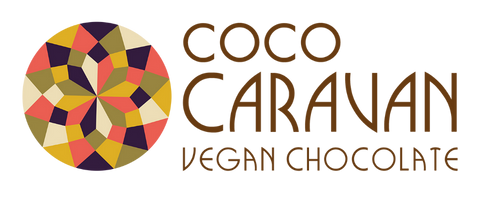The Ethics of our Chocolate
Our roots are in Farming and in Environmentalism. In our opinion these can and must go hand in hand. Growing up in a farming community teaches us that it is all about sustainability, not just in terms or energy but mainly about sustainable practices.
Ensuring the land is healthy - tomorrow
That the people working there - tomorrow,
That they are are able to live, work, educate and share happiness - tomorrow
So that you can enjoy our products today and tomorrow
We aim to source local, looking for small and local outlets of foods to support our local community.
Since there are no growing cacao trees or coconut trees in the UK we have to rely on our importers to supply us with the best ethical products. We have selected our products and suppliers on their environmental and ethical credentials and work closely with our suppliers to improve these.
Environmentally Friendly
Besides doing everything we can to source the best environmentally friendly materials we go further
Our chocolate workshop runs on the most energy efficient equipment, using 70% less energy than conventional equipment
We source our electricity from Ecotricity, powering our chocolate 100% on renewable energy
Our packaging is made from FSC sources and is fully recyclable and biodegradable. No plastics around this chocolate
All our packaging is printed locally with plant based inks
Wastes are kept to a minimum as boxes are re used, or recycled through the Stroud Council recycling
Fair Traded Cacao
Our criollo cacao and coconut blossom nectar are from certified Fair-trade sources. We work closely with our importers to ensure that every step of the way people have been payed fairly
Jacques meeting Hugo Chavez our cacao from Mexico
Sweetener - Ancient Style
Our supplier works with over 6,000 organic coconut farmers on the island of Java to produce the world’s most incredible sweetener; coconut blossom sugar and nectar. Coconut Blossom nectar is one of the world’s oldest sweeteners with over 6,000 years of history and perhaps nowhere else on earth are these sweeteners integrated so completely into both cuisine and traditional healing.
Before the producers were considered some of the most marginalized and poor in the country. Income, education and access to basic services was very low and in some cases.

